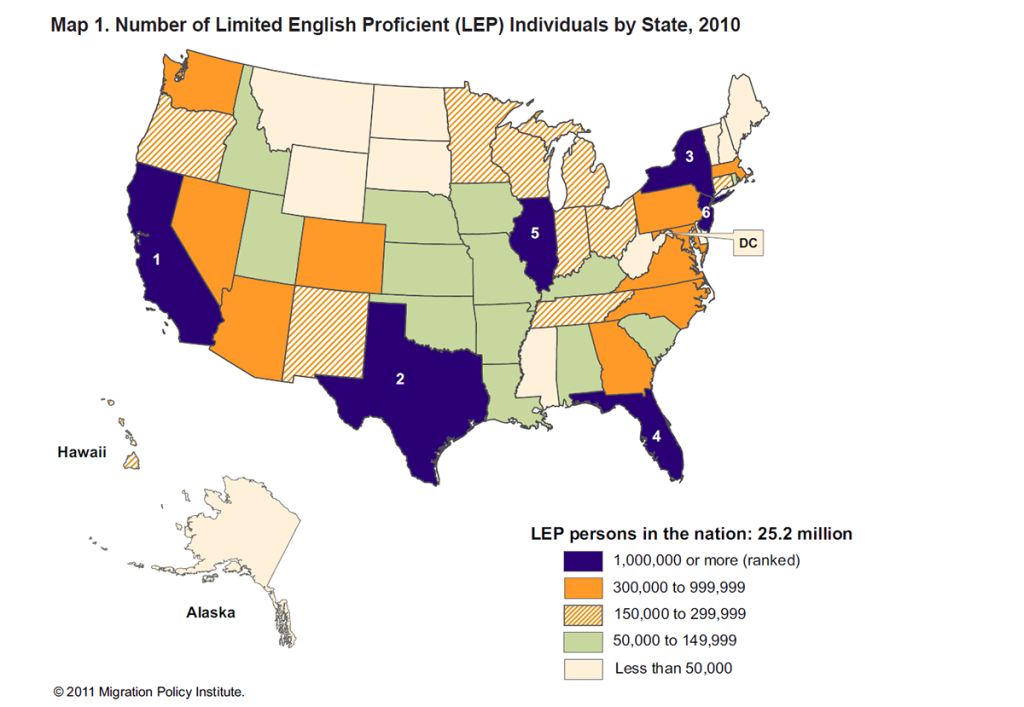
“I organize Bilingual Job Fairs across the country and in today’s global economy; many companies are seeking candidates with skills that go beyond just a degree. In order to stay competitive, as a country we need to seek to hire individuals that are global citizens.” — Neil Alvarado, Business Owner in Colorado
Learning English remains an important tool for immigrants to gain the opportunities to reach their fullest potential and contribute fully to the nation. ![]() Almost a quarter of the world’s population speaks English (about 1.75 billion people). And, in the United States, too many individuals are on waiting lists for classes to learn English. In addition, native-born Americans — young and old — are beginning to see the benefits of their own multilingualism as our economy and workforce are increasingly global. More and more schools offer language classes, and adults seek their own training opportunities in a range of languages.
Almost a quarter of the world’s population speaks English (about 1.75 billion people). And, in the United States, too many individuals are on waiting lists for classes to learn English. In addition, native-born Americans — young and old — are beginning to see the benefits of their own multilingualism as our economy and workforce are increasingly global. More and more schools offer language classes, and adults seek their own training opportunities in a range of languages.![]()
Read our paper, Immigrants and the Importance of Language Learning for a Global Society, that highlights strategies and recommendations that promote the ability of people who are limited English proficient (LEP), and the the ability of native English speakers, to reach their full career potential in a bilingual workforce.
Contextualized English-language learning has emerged as a crucial opportunity for immigrants in the workforce. ![]() Crafting effective public-private partnerships and other programs to offer these learning opportunities builds skills, increases productivity and allows people to enhance their own earning potential, all of which boost our economy. Moreover, in a rapidly globalizing environment, multilingual abilities are a competitive advantage for individuals and for businesses competing domestically and internationally.
Crafting effective public-private partnerships and other programs to offer these learning opportunities builds skills, increases productivity and allows people to enhance their own earning potential, all of which boost our economy. Moreover, in a rapidly globalizing environment, multilingual abilities are a competitive advantage for individuals and for businesses competing domestically and internationally.
Return to the Immigration 2020 Agenda


